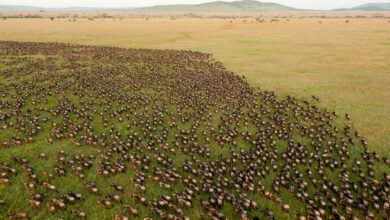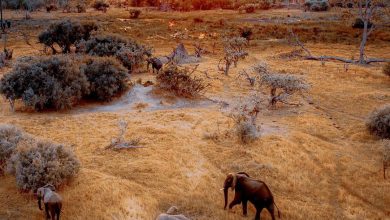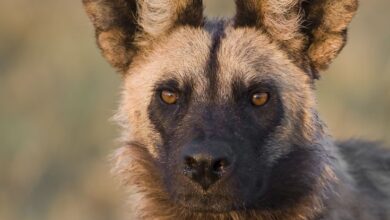Ultimate Guide to Planning a Safari in Kruger National Park

A safari in Kruger National Park, South Africa, is a bucket-list adventure for any nature and wildlife enthusiast. With its vast landscapes, abundant wildlife, and immersive experiences, it’s one of the best places in the world for a Big Five safari.
However, planning a trip to Kruger can feel overwhelming, especially for first-time visitors. This detailed guide breaks down everything you need to know to plan the perfect safari, from when to visit, where to stay, and how to maximize your experience.
Overview of Kruger National Park Safari
Kruger National Park, located in northeastern South Africa, spans nearly 20,000 square kilometers, making it one of the largest national parks in the world.
This enormous reserve is home to over 200,000 mammals, including elephants, lions, leopards, buffalo, and rhinos, commonly known as the Big Five.
The park also hosts diverse bird species, reptiles, and insects, making it a rich ecosystem for all types of wildlife lovers.
Whether you’re driving through Kruger on your own or staying in a luxury lodge, the park offers a variety of safari experiences to suit all budgets and interests.
When to Visit Kruger National Park
Knowing the best time to visit Kruger is crucial for optimizing your wildlife viewing experience. Kruger’s seasons offer different opportunities, each with its unique advantages.
May to September: The Dry Season (High Season)
- Best time for wildlife viewing. The bush is less dense, making it easier to spot animals. Rivers and waterholes are lower, concentrating wildlife around available water sources.
- Pros: Cool daytime temperatures, excellent visibility for animals.
- Cons: Can get chilly at night; prices are higher due to the high season.
October to December: Early Summer and Start of Rainy Season
- Emerging life in the park. Vegetation turns lush, and you may witness newborn animals.
- Pros: Great for photography with vibrant greenery, possibility to see baby animals.
- Cons: Harder to spot animals due to thick bush; higher daytime temperatures.
January to April: The Rainy Season
- Lush landscapes. Heavy rains rejuvenate the park, transforming it into a vibrant paradise with blooming flora and flowing rivers.
- Pros: Lower prices for lodges, stunning landscapes.
- Cons: Frequent rainfall makes animal sightings less predictable.
How Long to Spend in Kruger National Park
How much time you spend in Kruger largely depends on your preferences and schedule. While some visitors stay for extended periods, three to four days is typically enough for a well-rounded safari experience.
Recommended Stay: 3 to 4 Days
- Morning and evening game drives: Wildlife is most active during these hours.
- Downtime at the lodge: You’ll be surprised by the wildlife you can spot right from your accommodation.
Why Longer Stays are Better
- A longer stay allows for a more relaxed itinerary, with time to explore different parts of the park.
- Some South Africans spend weeks in Kruger, spotting wildlife and enjoying the natural beauty.
How to Get to Kruger National Park
There are several options to get to Kruger National Park, depending on your budget and where you’re coming from.
Flying into Kruger
- Airports: Nelspruit, Hoedspruit, and Skukuza (small airstrip).
- Convenient but expensive: The fastest way to access Kruger, with daily flights from Johannesburg.
Driving from Johannesburg
- Self-drive: A 5-6 hour drive from Johannesburg to Kruger. Roads may be rough, so plan ahead and drive carefully.
- Flexible but time-consuming: Self-driving offers more flexibility, but the journey can be slow due to road conditions and traffic.
Choosing the Right Area in Kruger National Park
Kruger is vast, and each area offers a different experience. Deciding where to stay can be tricky, but it largely depends on what you want from your safari.
Southern Kruger: Best for First-Time Visitors
- Popular areas: Skukuza, Marloth Park, and Crocodile Bridge.
- Why visit: Excellent game viewing opportunities and easy access to facilities.
Central Kruger: Great Wildlife Spotting
- Key areas: Satara and Olifants.
- Highlights: Known for great predator sightings, including lions and cheetahs.
Northern Kruger: Peaceful and Scenic
- Less crowded: Quieter, with fewer tourists but less frequent wildlife sightings.
- Ideal for: Visitors looking for a tranquil, nature-focused safari.
Accommodation Options: Where to Stay in Kruger
Your accommodation in Kruger will significantly shape your safari experience, and the park offers options for all budgets.
Luxury Private Lodges
- Cost: Over $1,000 per night.
- Why choose: Unmatched comfort and personalized service with private game drives, luxurious rooms, and gourmet dining.
- Top choices:
- Lion Sands – Tinga Lodge
- Leopard Hills Lodge
- Thornybush Simbambili Lodge
Affordable Lodges and Camps Outside Kruger
- Cost-effective: Ideal for budget travelers looking to experience Kruger without breaking the bank.
- Top choices:
- Protea Hotel by Marriott Kruger Gate
- Needles Lodge, Marloth Park
- Jock Safari Lodge
Safari Essentials: Things to Know Before You Go
Before embarking on your Kruger safari, there are a few key details you should be aware of.
Park Entrance and Exit Times
- Gates typically open just before sunrise and close at sunset. Make sure you’re back before the gates close to avoid fines.
Kruger Park Entry Fees
- International visitors: R400 per adult per day.
- South African citizens: R100 per adult per day (with valid ID).
- Check the official SANParks website for up-to-date fees.
Self-Driving vs. Guided Game Drives
- Self-driving: Offers more flexibility, but you may miss expert insights from a ranger.
- Guided drives: Provide better opportunities to spot wildlife, thanks to the rangers’ expertise.
Ethical Considerations for Safaris
As responsible travelers, it’s essential to consider the impact of our actions on wildlife and the environment. Here are a few ethical practices to keep in mind:
- Respect wildlife: Never leave your vehicle unless permitted, and always follow your ranger’s instructions.
- Minimize your footprint: Stick to marked paths to avoid disturbing natural habitats.
- Support conservation efforts: Choose lodges and guides that actively contribute to conservation initiatives.
Final Thoughts: Is a Kruger Safari Worth It?
Absolutely. A safari in Kruger National Park offers an unparalleled wildlife experience. From spotting the Big Five to relaxing in world-class lodges, this adventure promises memories that will last a lifetime. Whether you’re an experienced safari-goer or a first-time visitor, Kruger’s immense biodiversity and breathtaking landscapes will captivate you.
References and Further Reading
- South African National Parks – Kruger National Park
- Best Time to Visit Kruger National Park
- Official SANParks Fees and Entry Information
This guide is designed to help you plan an unforgettable trip to Kruger National Park. Happy safari planning!





